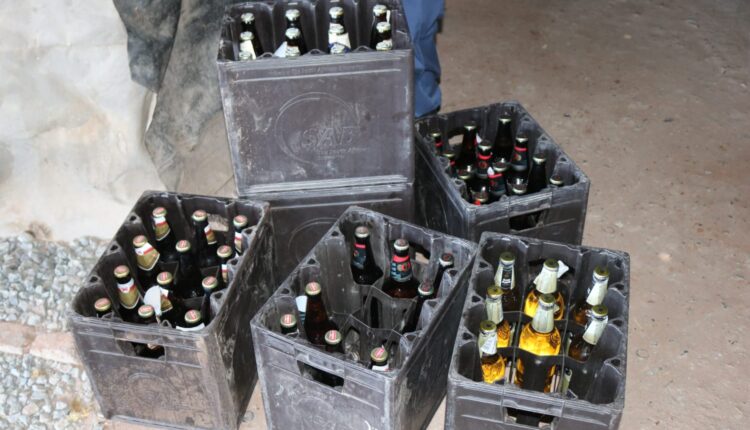Commemorating “No Alcohol Day”
Supplied
In 2008, the World Health Organisation declared 3 October as World No Alcohol Day and the country is observing October as Social Development month.
Minister for Social Development (DSD), Sisisi Tolashe is appealing to all South Africans not to consume alcohol or sell alcohol to children.
Under the theme: “Say No to alcohol and selling alcohol to minors is a crime”, Tolashe collaborated with MEC for Social Development in KwaZulu-Natal, Cynthia Mbali Shinga, Southern African Alcohol Policy Alliance (SAAPA) and the Central Drug Authority (CDA) to commemorate the day in Sweetwaters, in Pietermaritzburg, KwaZulu-Natal.
The day aims to address the effects of using alcohol, binge drinking amongst South African youth and the consequences of selling alcohol to children.
According to the DSD alcohol is the most misused legal drug in South Africa resulting to negative impact on the fabric of many communities, especially children and young people. South Africa has one of the highest rates of alcohol consumption globally and the rate kept rising over the last 10 years.
The department further highlighted that alcohol abuse plays a role in half of non-natural deaths, 75% of homicide cases; 60% of automobile accidents and 24% of vehicle deaths and injuries.
Tolashe alluded that alcohol is the third-largest contributor to death and disability after unsafe sex/sexually transmitted infections and interpersonal violence.
“The use of alcohol use has been recognised as a major contributor to the global burden of disease, with an even greater detrimental effect in low- and middle-income countries and people living in poverty. In total, more than 13 million disability-adjusted life years, or 7% of the total disease burden in South Africa, is attributed to alcohol.”
She said young people aged 15 to 29 have the greatest burden of disease attributable to alcohol use. Although, men generally use and abuse alcohol more frequently and experience a greater burden of disease than women, a significant proportion of young women in South Africa are also using alcohol.
Women in disadvantaged communities with comparable alcohol use to men are significantly less likely to obtain treatment. Alcohol use in young women is associated with high rates of multiple comorbidities including risky sexual practices, poor adherence to HIV medications, depression and intimate partner violence (IPV).
Tolashe cautioned that alcohol use among parents /care givers can have long-standing negative effects on their children and their ability to thrive given their homes are often less organised, routines are more chaotic and maternal adherence to health regimens suffer.
“Alcohol use in young women, results in children being born with Foetal Alcohol Spectrum Disorders (FASD)” explained Tolashe.
Data from the 2016 South African National Demographic and Health Survey found that at least one in every four young people had consumed alcohol by the ages of 15–19
Tolashe mentioned the tragic incident that took place in Scenery Park, East London, where 21 young lives were lost at Enyobeni Tavern. This demonstrates the risks children are exposed to, including limited implementation and monitoring of government policies such not selling or serving alcohol to children under 18, said the Minister.


Comments are closed.